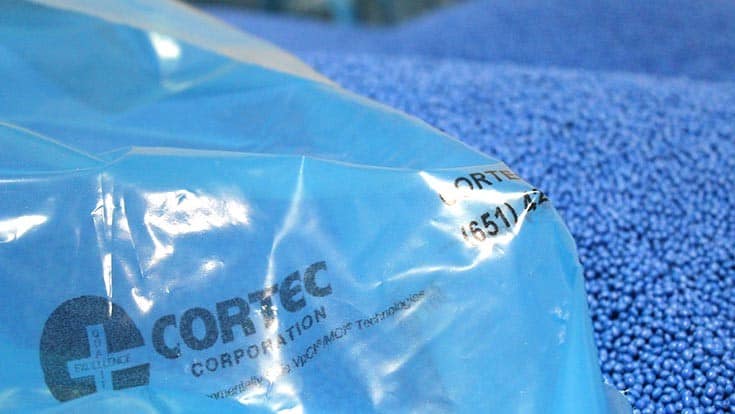You just got a shiny new phone, and you can't wait to show it off. But wait! What is that? A tiny scratch already? You are not alone in this frustration. We have all experienced the agony of seeing our precious belongings marred by scratches, smudges, or even worse, cracks. Enter the hero of the hour; protective plastic film. But what exactly is this miracle worker, and how does it save the day?
What Is a Protective Film?
Protective plastic film, also known as surface protection film, is like cloak of invisibility for your valuable surfaces. It is a thin layer of material that adheres to various surfaces, shielding them from scratches, abrasions, dust, and other forms of damage. Think of it as a shield that keeps your belongings looking brand new, even after regular use.
What Are the Benefits of Protective Film?
The benefits of using protective plastic film are as abundant as they are indispensable.
1. Preserves the stylish appeal of your surfaces, maintaining their pristine condition for longer periods.
2. Enhances the durability of surfaces, prolonging their lifespan and reducing the need for costly repairs or replacements.
3. Acts as a barrier against scratches, prolonging their lifespan and reducing the need for costly repairs or replacements.
4. Provides a layer of protection without altering the appearance or functionality of the underlying surface.
5. Offers UV resistance, anti-static properties, and other features to further enhance effectiveness in different applications.
What Is a Protective Film Made Of?
Protective film is like a superhero cloak for different surfaces, so its ingredients vary depending on where it is used. Let's break down some common materials, mostly plastic, that make protective film:
1. Low-density polyethylene (polythene films): These are super stretchy and bendy, plus they are really light. They are great for when you need extra flexibility.
2. Polyvinyl chloride (PVC): This material is smooth and has more stretch compared to other. It is perfect for safeguarding metal surfaces because of its elasticity.
3. Polypropylene: Unlike the super stretchy ones, polypropylene is less bendy but can handle high temperatures without losing its shape. It is tough and durable.
4. Polyolefin: These are a great fit for glass or painted metal. They come in different types, each tailored for specific needs like packaging or protection.
5. Co-extruded, low-density polyethylene: This is like the fancy version of polythene. It gives an extra layer of protection by using clever layering techniques.
6. Paper: Yep, good old paper! It is used when you need protection against really gentle bumps and scratches.
So, depending on what you need to protect, there's a special film made just for it!
Types of Protective Film
· Surface protective Film: This type of film is versatile and can be applied to a wide range of surfaces, including glass, metal, plastic, and painted surfaces. It provides a barrier against scratches, stains, and other forms of damage, without altering the appearance or functionality of the underlying surface.
· Protection Film for Painted surfaces: Specifically designed for painted surfaces such as cars or furniture, this film offers protection against chips, scratches, and fading caused by UV exposure. It preserves the glossy finish of paintwork, ensuring that your surfaces look showroom-worthy for years to come.
Benefits in Various Industries
1. Aerospace Industry: protective film is essential in the aerospace industry for safeguarding sensitive components and surfaces during manufacturing, transportation, and assembly. It prevents scratches, corrosion, and contamination, ensuring the integrity and performance of critical aerospace systems.
2. Electronics Industry: In the electronics industry, where delicate screens and components are commonplace, protective film acts as a barrier against scratches, fingerprints, and static electricity. It preserves the functionality and appearance electronic devices, enhancing their longevity and user experience.
3. Medical Industry: Protective films play a crucial role in the medical industry by safeguarding medical equipment, instruments, and surfaces against contamination, scratches, and chemical damage. It maintains the sterility and integrity of medical devices, ensuring optimal performance and patient safety.
4. Automotive Industry: From automotive paint protection films to interior surface protection, protective film is a must have in the automotive industry. It shields vehicles from road debris, UV radiation, and environmental pollutants, preserving their appearance and resale value.
5. Defence Industry: In the defence industry, where reliability and durability are paramount, protective film is used to safeguard military equipment, vehicles, and weapons from damage caused by harsh environments, corrosion, and abrasion. It ensures the readiness and effectiveness of defence systems in the field.
Prepare to shield your surfaces from the perils of everyday life? Discover the magic of protective plastic film and unlock a world of unbeatable protection for your belongings. Whatever industry you may belong to, Cortec® has the perfect solution to keep your surfaces safe and sound. Don't wait until it is too late-protect what matters most with Cortec®'s premium protective film today!






Comments